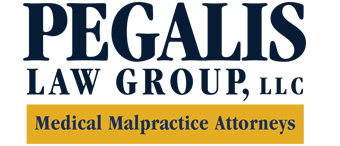-
What Constitutes Medical Negligence During Childbirth?
 So many problems can occur during labor and delivery, often as a result of medical malpractice. If your child was diagnosed with a birth injury, you can work with a medical malpractice attorney to assess the possibility that medical negligence caused the health problem. Sometimes, a medical malpractice lawyer may file a lawsuit on the basis of negligent prenatal care. For example, a physician may have failed to diagnose the mother with contagious disease, gestational diabetes, preeclampsia, anemia, or other medical condition that can affect the health of the fetus.
So many problems can occur during labor and delivery, often as a result of medical malpractice. If your child was diagnosed with a birth injury, you can work with a medical malpractice attorney to assess the possibility that medical negligence caused the health problem. Sometimes, a medical malpractice lawyer may file a lawsuit on the basis of negligent prenatal care. For example, a physician may have failed to diagnose the mother with contagious disease, gestational diabetes, preeclampsia, anemia, or other medical condition that can affect the health of the fetus. Negligence also frequently occurs during labor and delivery. For example, the healthcare team may fail to properly monitor the fetal heart rate or they may fail to respond appropriately to signs of fetal distress. This may lead to a delay in ordering an emergency C-section when one is needed. Other birth injuries occur because the obstetrician failed to properly use instruments such as vacuum extractors or forceps, which can cause the child to develop serious disabilities.
Families of children who have been diagnosed with birth injuries can turn to Pegalis & Erickson for legal guidance. To schedule an appointment with a birth injury lawyer in Long Island, New York, call (516) 684-2900.
-
Questions to Ask Your Doctor after a Stillbirth
No parent wants to consider the possibility of losing a child before welcoming him or her into the world. Unfortunately, medical malpractice can all too often result in stillbirth. After the loss of a child, parents are often faced with more questions than answers. If medical staff are resistant to answering questions, parents can turn to a malpractice law firm in Long Island for assistance.
How did This Happen?

After the loss of a child, one of the most common questions parents ask is how this could have happened? While there are identifiable causes of stillbirth, the exact cause in a particular case may sometimes be unknown. Some of the possible causes of stillbirth include chromosomal disorders, poor fetal growth, placental abruption, and chronic health conditions of the mother. Sometimes, a healthcare provider may be negligent in failing to diagnose or treat a health problem that can lead to these avoidable causes of stillbirth.Could My Baby Have Been Saved?
This is a difficult question to answer because it depends on the cause of stillbirth. Parents should try not to blame themselves for the loss of the baby. Sometimes, pregnancy loss occurs due to uncontrollable factors. At other times, it’s because of the negligence of the OB/GYN staff.What Should I Expect from the Recovery?
Recovering from stillbirth can be a very difficult time in a woman’s life. This is particularly true if the baby died in the uterus, which means that the woman will need to have labor induced or undergo a cesarean section. After stillbirth, it’s not uncommon for women to experience physical pain and discomfort. Parents may suffer from overwhelming depression and other psychological issues.The legal team at Pegalis & Erickson would like to extend our condolences to parents who have suffered the loss of their children. After the tragic loss of a child due to medical malpractice, you may wish to seek justice on behalf of your child. Please call (516) 684-2900 to speak with a medical malpractice attorney in Long Island, New York and discuss your legal options.
-
What Are Some Common Risk Factors for Stillbirth?
Stillbirth is among the most devastating experiences for expectant parents. Stillbirth occurs when the baby dies while still in the womb. It may occur at any time past 20 weeks of gestation, including during labor and delivery. Often, stillbirth is the result of uncontrollable medical circumstances. Sometimes, however, it may be caused by acts of medical malpractice. If you’ve suffered the loss of your baby, you could consult a lawyer at a malpractice law firm to determine if you have the basis for a lawsuit.
Improper Prenatal Care

One way in which stillbirth may be the result of medical malpractice is if a woman received improper prenatal care. The expectant mother may not have been properly counseled about her nutritional needs, leading to an increased risk of malnutrition and stillbirth. Or, a healthcare provider may have failed to diagnose the patient with a high-risk pregnancy, despite having indications of it. Mothers with diabetes should be considered high-risk and monitored very closely.Bacterial Infections
A healthcare provider may sometimes be found negligent in failing to diagnose the expectant mother with a bacterial infection. If the mother develops a bacterial infection between 24 and 27 weeks of gestation, fetal death can occur, or there can be a premature delivery.. Unfortunately, these infections frequently go undiagnosed until serious complications develop.Chronic Health Conditions
Some instances of stillbirth occur as a result of chronic health conditions of the mother. Expectant mothers who have kidney disease, high blood pressure, diabetes, or blood clotting disorders must be carefully monitored during pregnancy. These health problems can lead to poor fetal growth, which increases the risk of stillbirth. Additionally, some women develop preeclampsia during pregnancy, which is a form of high blood pressure. This can also heighten the risk of stillbirth.If your family has suffered a pregnancy loss, you can turn to the medical malpractice team at Pegalis & Erickson for legal guidance. Call (516) 684-2900 to schedule a consultation at our malpractice law firm in Long Island, New York. Our law firm has been nationally recognized for our outstanding track record of successful jury awards and settlements for our clients.
Recent Posts
Popular Posts
categories
- Uncategorized
- Infographic
- Patient Safety
- Patient Health
- Stillbirth
- Birth Injuries
- Medical Malpractice
- Medical Negligence
- Event
- Erb's Palsy
- Injury
- ER
- Video
- Cancer Misdiagnosis
- Medication Errors
- Cerebral Palsy
- Medical Negligence Lawyer
- Anesthesia Injuries
- Brachial Plexus
- Prostate Cancer
- About Us
- Men's Health
- Skin Cancer
- Breast Cancer
- Misdiagnosis
